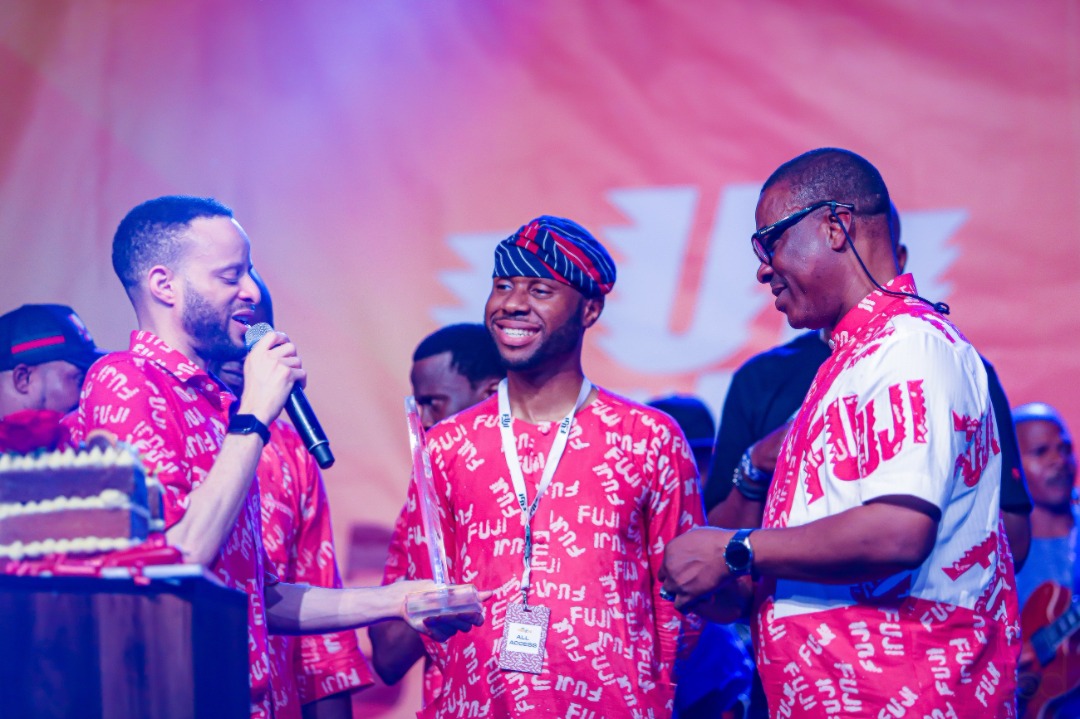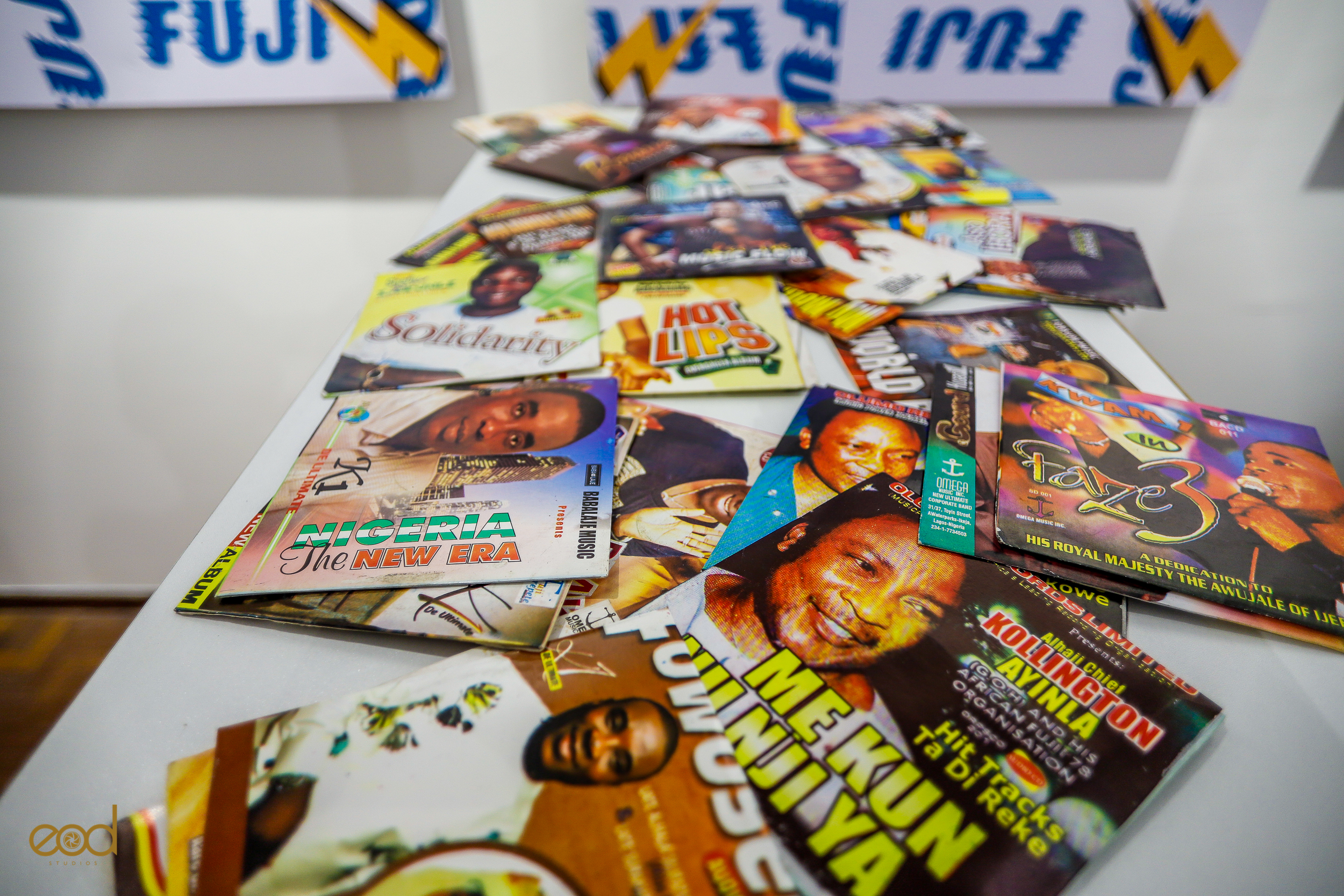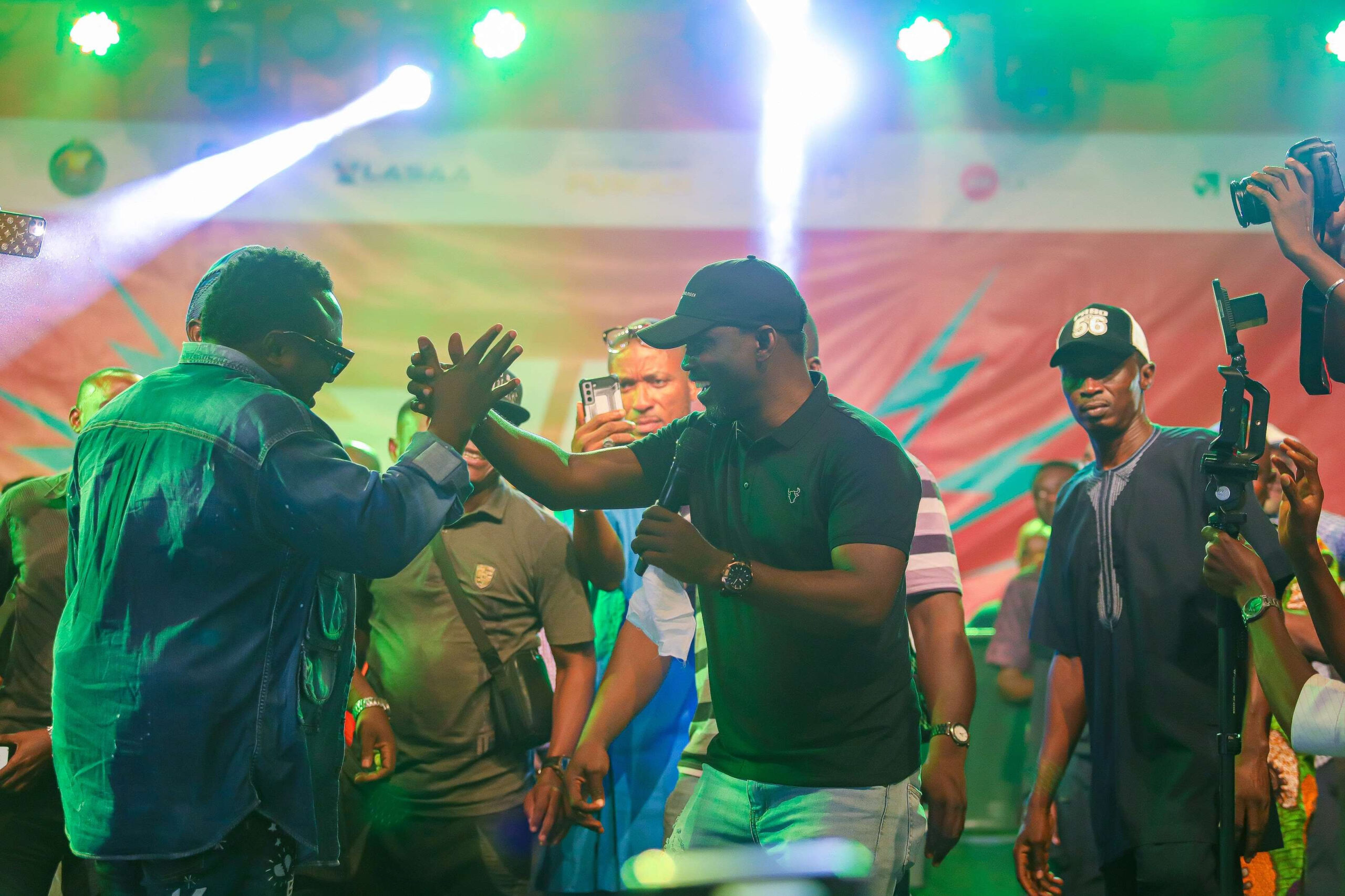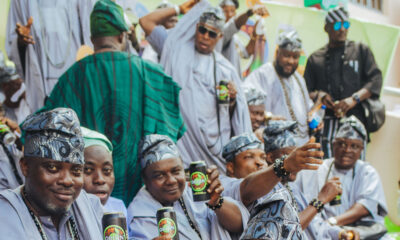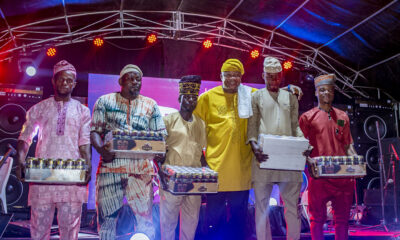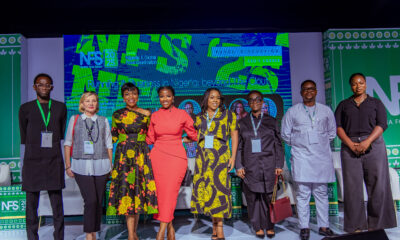Music
How Bobo Omotayo Is Preserving Fuji’s Heritage Through FUJI: A Opera
In the history of Nigerian music, Fuji music stands out as one of the most popular traditional genres that has transcended its borders. Its influence is so profound that the history of music in Nigeria wouldn’t be complete without it. An indigenous Yoruba music genre, Fuji, evolved in the 1960s from “were” (pronounced as wayray) music, a genre similar to a Muezzin’s call to prayer, performed to wake Muslims before dawn during the Ramadan fasting period.
Alhaji Sikiru Ayinde Barrister, renowned for his brilliant use of poetic Yoruba lines to craft lyrics, popularised the music and is said to have coined the name “fuji” after seeing a poster advertising the popular Japanese tourist attraction, Mount Fuji. Drawing from Yoruba culture, Fuji incorporates elements of Islamic and Yoruba music, distinguished by its high-energy and cheery vibe, along with intricate rhythms and melodic themes. Its style is vibrant, and its use of call-and-response vocals is unlike any other.
Though dominant in Nigeria’s South among Yoruba-Muslim communities, Fuji has grown over the years and across generations, impacting artists and their music, enabling collaborations across different genres, and influencing culture, both at home and in the diaspora.
Bobo Omotayo is a Fuji lover who is passionate about preserving the history and rich heritage of the genre. In 2020, he organised an exhibition at the Alliance Francaise de Lagos/The Mike Adenuga Centre, Ikoyi, Lagos, that marked the maiden edition of Fuji: A Opera. The exhibition had guests exploring the music genre and poring through archive footage, costumes, memorabilia, and imagery. Pioneering founders of Fuji, General Ayinla Kollington, King Wasiu Ayinde Marshall, and other icons were present at the event. In August 2023, he took the exhibition to London in ‘A Letter To Fuji’ for the second edition of FUJI: A Opera.
A culture custodian himself and creator of FUJI: A Opera, Bobo Omotayo, has more up in his fuji sleeves. In a quick and exclusive interview, he tells us more about FUJI: A Opera and his plans for 2024:
FUJI: A Opera celebrates fuji music’s influence and legacy. With artists like King Wasiu Ayinde Marshall shaping the genre, what has the impact been like so far?
FUJI: A Opera is a multifaceted cultural platform that celebrates and reimagines indigenous Nigerian music for the next generation of music lovers.
This is year four, and the trip has been purposeful. In this short period, we have established a network of cultural stewards both at home and in the diaspora. In 2023, we made our UK debut at the Africa Centre in London, where over 2000 people visited a one-of-a-kind PopUp.
What’s your plan this year to engage and inspire the diaspora audience and deepen their love for fuji music?
In 2024, we are particularly excited about two significant projects: (i) our documentary, which celebrates the rich tapestry of Yoruba music and its impact on what we now know as Afrobeats; and (ii) an online talent hunt. These two projects will seek to engage audiences at home and abroad.
For its third edition on December 7, 2023, FUJI: A Opera hosted Fuji Vibrations at Muri Okunola Park, Victoria Island. On one stage, five iconic fuji artists – Alhaji Musibau Alabi, Baa Wasi (Pasuma Wonder), Atawewe, Malaika, Saheed Osupa, and Obesere – treated fuji fans to a memorable evening of fuji music. Emmanuel Akinwotu, a correspondent at NPR, reported on the event and shared his experience below.
Watch it here:
View this post on Instagram

